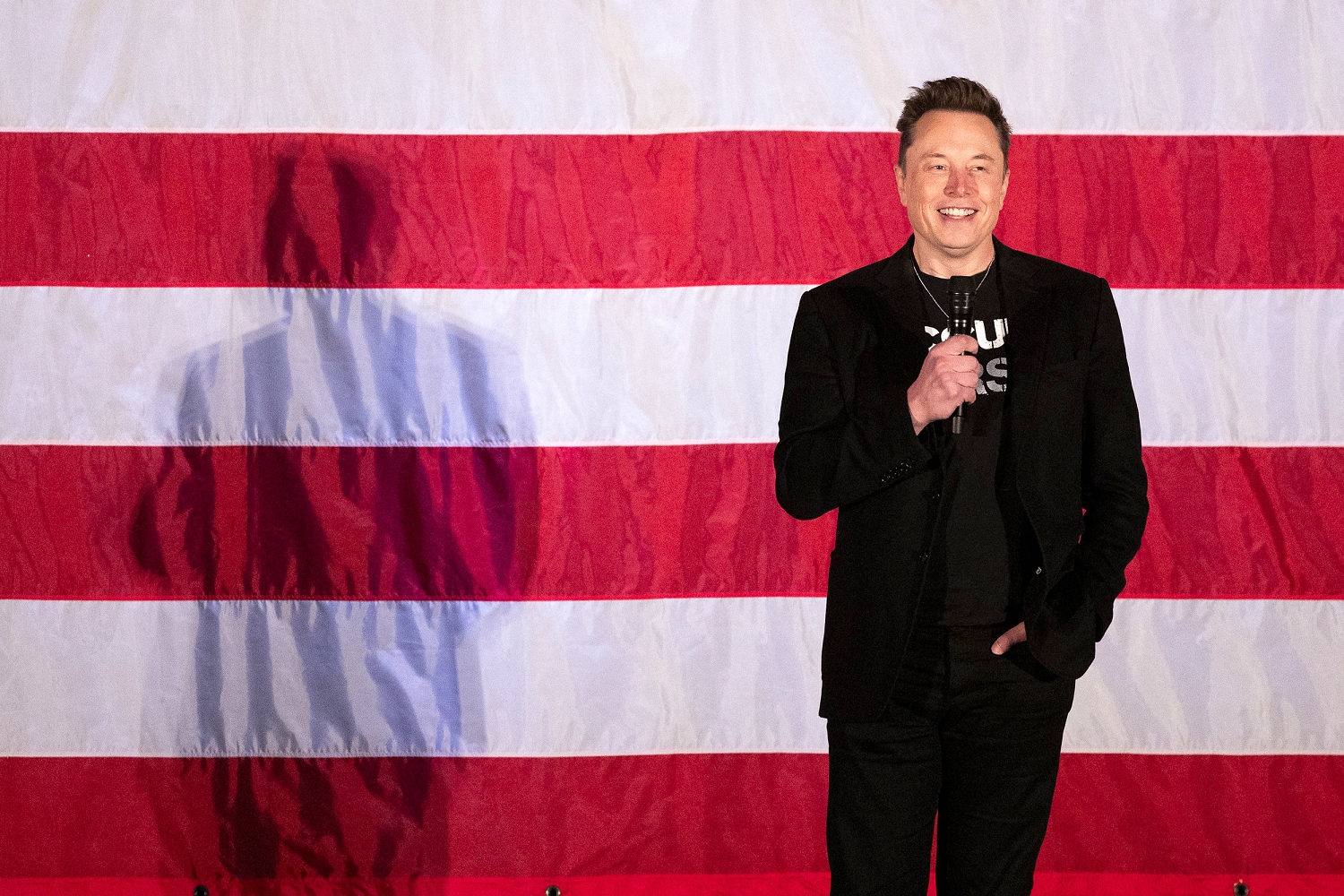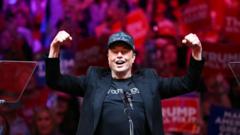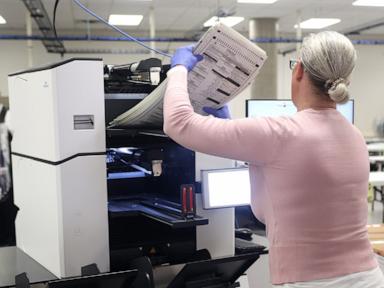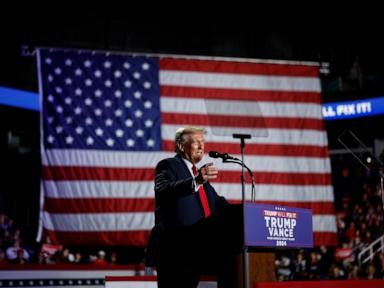Why India is one of the biggest winners in Trump’s election

Hindu priests chanting sermons and holding prayers for an American presidential candidate is a rare sight. But the world witnessed just that in 2024, when Hindu priests in New Delhi prayed for a Trump victory.
Granted, there were prayers for Vice President Harris as well, particularly in her ancestral village. While wishes and prayers for Harris are understandable given her mom’s roots in southern India and the perspicuous ethnic solidarity, priests gathering for what has now become a ritual-like ceremony for a Queens-raised New York businessman of German and English ancestry is something worth pondering.
From Trump’s first presidential campaign in 2016 to the most recent in 2024, members of the Indian right, strategic thinkers and even analysts of U.S.-India bilateral relations in India have largely been bullish on a Trump presidency — a position one would not find in most parts of Europe, Southeast Asia or even Canada.
While large parts of Europe went into panic mode on Nov. 5, Indians were elated with the news that the former President would once again be in the Oval Office as the 45th president of the United States. But why?
The U.S.-India relationship is built on three solid pillars: immigration and the resulting diaspora, trade and commercial ties and lastly, defense and security cooperation. Presidents from George W. Bush to Joe Biden have all sought good relations with the world’s largest democracy. And unsurprisingly, the bilateral partnership has been on an upward trajectory.
Since the early 2000s, trade has expanded significantly, Indian migration to the U.S. has grown exponentially and security cooperation across advanced technological and conventional domains has expanded over increasing concerns about China’s aggressive behavior in the Indo-Pacific.
That said, not all administrations in Washington or New Delhi have created a conducive environment for unfettered growth. As we’ve witnessed with the recent turbulence in the relationship over the alleged killing of a Khalistani separatist, the bilateral partnership is often caught in a myriad of Cold-War era differences.
Measuring by those standards, the Biden administration's relationship with India was among the worst in the last two decades. Quad meetings were postponed, the shipping of defense orders to New Delhi was delayed and New Delhi was pressured (unsuccessfully) to choose a side between Russia and Ukraine.
Contrast this with the first Trump administration’s management of ties with New Delhi. Trump and Modi’s personal relationship — seen in events such as Howdy Modi — drove the partnership to new heights.
Moreover, multilateral initiatives such as the Quad found new resonance in the four nations of Japan, Australia, India and the United States. The synergies over multilateral initiatives and security deals underscored the deepening strategic partnership between Washington and New Delhi under Trump 1.0.
Nonetheless, issues surrounding trade and immigration proved to be thorns in the partnership. President-elect Trump’s first administration witnessed tariff wars and tiffs with allies and partners. India was not spared. The trade imbalance between the two economies coupled with India’s protectionist policies were sources of tension between the two countries during the first administration.
Similarly, highly restrictive legal immigration policies, while not a significant government-to-government challenge like trade, certainly made it difficult for Indian information technology companies to avail visas for their workers.
While these were irritants, none of the Trump administration’s policies were perceived as challenging India’s sovereignty or overtly working against its strategic interests in the Indian Ocean region as the Biden administration’s policies have on more than one occasion.
From the Biden administration’s recognition of the government formed in Bangladesh after the ouster of their prime minister Sheikh Hasina, to its diplomats engaging in virtue signaling on India’s domestic politics, the administration has practiced, in the words of Prof. John Mearsheimer, “liberal hegemony.” On the other hand, President-elect Trump expressed concerns and solidarity with religious minorities, including Hindus in Bangladesh.
From Vietnam to India to Mexico, Global South nations will have issues with Trump over trade and immigration. However, interestingly, they have been more perturbed by the Biden administration’s involvement in their domestic affairs. India is just one among many nations in the Global South constantly challenged on their democratic credentials by Westerners. Paradoxically, Westerners championing liberalism and democracy tend to evoke greater anti-imperialist sentiments in former colonies than the Westerners that advocate restraint and realism in foreign policy.
The Indian diaspora in the U.S. has largely voted Democratic, including in the recently concluded elections. But if Trump walks the talk on expanding high-skilled legal immigration, he will be rolling the red carpet for a historically democrat voting community to join the Republican Party.
Indian civil society and the strategic community are ecstatic about Trump’s nominations for several key high-level posts from Sen. Marco Rubio (R-Fla.) as secretary of State to Rep. Mike Waltz (R-Fla.) as national security adviser to Tulsi Gabbard as the director of national intelligence. All of whom have consistently championed greater ties with India, through thick and thin.
For New Delhi, Trump’s transactional foreign policy, involving defense and security deals without all of Biden's values-evangelism would be a welcome policy shift. Furthermore, an administration in Washington open to engagement with Russia may reduce New Delhi’s headache of dealing with calls from the Western world to sever its own ties with Russia.
It may be premature, but all signs point to an enhanced U.S.-India partnership under Trump 2.0.
Akhil Ramesh is the director of the India Program and Economic Statecraft Initiative at Pacific Forum.
-
Adani vs. Hindenburg: How one of India's biggest empires descended into chaos
Business - CNBC - 6 days ago -

Why One of College Basketball’s Biggest Stars Returned to School
Sports - The New York Times - 5 days ago -

Elon Musk could be the biggest winner of a second Trump term
Top stories - NBC News - November 5 -

Why Tesla, crypto and prisons are Trump trade winners
Top stories - BBC News - November 12 -

Why the winner of the 2024 presidential race might not be projected on election night
Top stories - ABC News - November 5 -
Why inflation in one battleground state could sway the election
Top stories - CBS News - October 30 -

Trump tells ABC he expects a winner to be declared election night
Top stories - ABC News - November 3 -

Whether Trump or Harris, Pessimism Reigns in Russia Over U.S. Election Winner
World - The New York Times - November 5 -
The portfolio's biggest stock winners — and laggards — for the week
Business - CNBC - 4 days ago
More from The Hill
-

Trump taps Keith Kellogg as special envoy to Ukraine and Russia
Politics - The Hill - 37 minutes ago -

An obscure court case could reverse bail reform
Politics - The Hill - 49 minutes ago -

Fox host: Podcasters like Rogan have 'earned' seats in White House briefing room
Politics - The Hill - 1 hour ago -

New York Times editorial board urges Senate to confirm 'as many judges as possible' ahead of Trump's second term
Politics - The Hill - 1 hour ago -

12:30 Report — Trump fills health team with skeptics, disrupters
Politics - The Hill - 1 hour ago